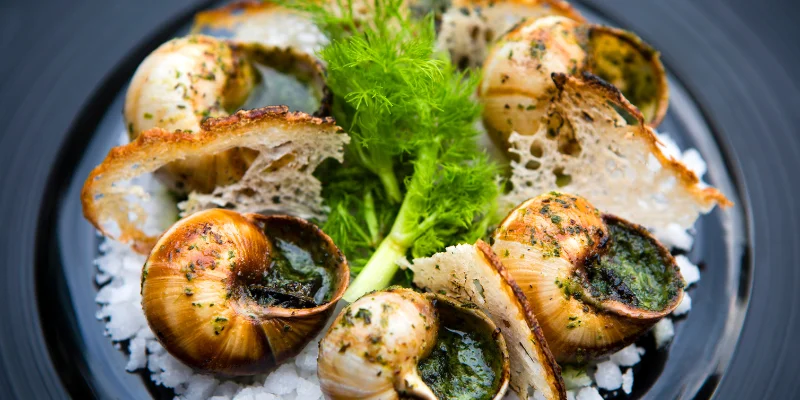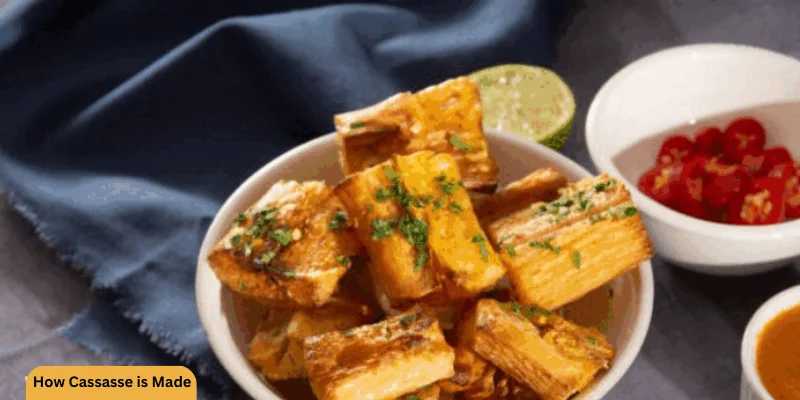Embark on a gastronomic journey as we unravel the rich and diverse world of Cassasse, a traditional Caribbean dish that transcends mere sustenance. With its roots deeply entwined in the cultural tapestry of African and French cuisine, Cassasse has found its place on the tables of Haiti, Martinique, Guadeloupe, and other sun-kissed Caribbean islands.
What is Cassasse?
Cassasse is a type of French pastry crafted from thin layers of dough that can be rolled, flattened, and then filled with caramel or sugar syrup. It’s a popular dessert in France and is frequently served alongside coffee or tea. The call comes from “tasse” meaning cup or mug in French, as it is historically served in a cup-fashioned pastry jar.
Unraveling the History and Origins of Cassasse
Cassasse, a culinary gem rooted in African and French traditions, graces the tables of Haiti, Martinique, Guadeloupe, and various Caribbean islands. This delectable dish draws its name from the French “cassoulet,” signifying a slow-cooked casserole. Let’s delve into the rich tapestry of Cassasse, exploring its history, preparation, and cultural significance.

Originally crafted by African slaves in the Caribbean during colonial times, Cassasse embodies a fusion of African flavors and French culinary techniques. These culinary pioneers adapted traditional recipes, giving rise to unique dishes like Cassasse.
How Cassasse is Made
Crafting Cassasse is an art, involving a slow-cooking process that melds beans, pork, vegetables, and spices into a savory broth served over rice. This amalgamation results in a dish that is both comforting and fulfilling.
Embracing Diversity: Different Variations of Cassasse
One intriguing facet of Cassasse lies in its diverse preparations across regions. Haitian Cassasse boasts a kick with spicy scotch bonnet peppers, while Guadeloupian Cassasse introduces sweetness through yams or sweet potatoes. The preparation involves slow cooking, allowing flavors to intertwine into a rich and nuanced taste.
Traditional Uses and Cultural Significance of Cassasse
Beyond its culinary allure, Cassasse carries cultural significance in Caribbean communities. Its roots as a creation by African slaves speak to its historical importance, making it not just a meal but a symbol of resilience and adaptation.
Unveiling the Health Benefits of Consuming Cassasse
Cassasse, often considered a comfort food, offers more than just a satisfying meal. Its nutritional profile includes essential nutrients like folate, potassium, magnesium, iron, and zinc. Furthermore, the fiber content aids in digestion supports heart health, and contributes to weight management.
Where to Find and Purchase Cassasse: Exploring the Market
If you’re intrigued by Cassasse and wish to incorporate it into your culinary repertoire, here are avenues to explore:
- Local Fabric Stores: Begin your search at specialty fabric stores, where you can physically experience the texture and seek guidance from knowledgeable staff.
- Online Retailers: In the digital era, online retailers provide a vast array of options, offering convenience and a broader selection.
- Fabric Markets: Immerse yourself in local culture by exploring traditional markets, where you may find unique Cassasse fabrics from different regions.
Savoring Cassasse: Delicious Recipes and Culinary Inspiration
As you embark on your Cassasse culinary journey, here are some mouth-watering recipes to explore:
- Cassasse Glazed Chicken: Marinate chicken in a blend of garlic, lemon juice, soy sauce, and red pepper flakes, then grill or bake, finishing with a delightful Cassasse glaze.
- Roasted Cassasse Vegetables: Elevate your vegetable game by roasting favorites like carrots and bell peppers, drizzling them with warm Cassasse, and garnishing them with fresh herbs.
- Fish Tacos with Cassasse Slaw: Transform taco night with a Cassasse-infused slaw, combining shredded cabbage, red onions, cilantro, and a mayo-lime-cascade dressing.
Integrating Cassasse into Your Diet: Tips and Ideas
Make Cassasse a versatile addition to your meals with these ideas:
- Breakfast Boost: Sprinkle Cassasse on oatmeal, blend it into smoothies, or mix it with yogurt for a nutritious and flavorful start to your day.
- Gluten-Free Flour Alternative: Substitute Cassasse for regular flour in baked goods to add a nutty taste and achieve a fluffy texture.
- Cassasse Bowls: Create satisfying bowls by topping cooked Cassasse with proteins, vegetables, and your favorite dressing.
- Soups and Stews: Enhance soups and stews by adding Cassasse, absorbing flavors and contributing nutrients.

Mastering the Art: Tips for Cooking with or Serving Cassasse
Whether cooking or serving Cassasse, here are some essential tips for an optimal experience:
- Fresh Ingredients: Opt for crisp vegetables, high-quality meat, and fresh herbs to enhance the simple, fresh flavors of Cassasse.
- Seasoning Mastery: Experiment with various herbs and spices to strike the perfect balance, creating Cassasse’s rich and flavorful profile.
- Temperature Precision: Monitor the cooking temperature diligently to achieve the ideal texture and tenderness, preventing burning or overcooking.
- Diverse Cooking Methods: While traditional stovetop cooking prevails, explore alternatives like slow cookers or grilling for added depth of flavor.
- Marination Magic: Allow time for marinating meat before incorporating it into Cassasse, enhancing flavor and tenderness.
Wrap It Up:
In conclusion, the journey into Cassasse transcends culinary exploration. Embrace this unique dish for its authentic flavor, cultural significance, and the opportunity to support local communities. With its nutritious ingredients and diverse applications, Cassasse is not just a meal; it’s a celebration of history, culture, and gastronomy.
An amazing post to read about Ovestæ

